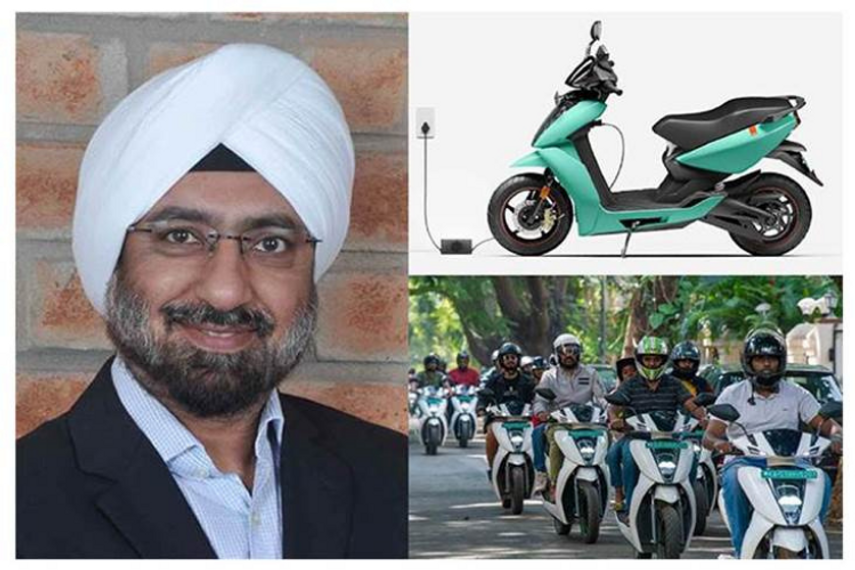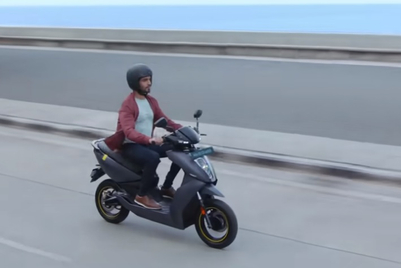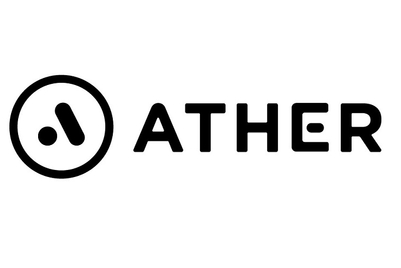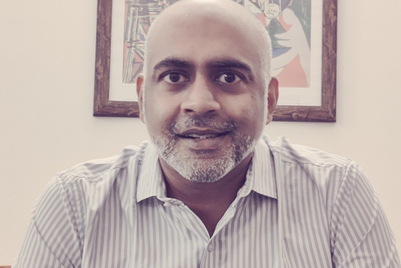
In an effort to be future-ready, smart electric scooter manufacturer Ather Energy is expanding capacity three-fold to 400,000 units. In a chat with Autocar Professional, chief business officer Ravneet Phokela explains that the EV industry’s fundamentals are strong and consumer acceptance is getting stronger.
Excerpts:
Ather Energy has recently announced capacity expansion at the Hosur plant. Is market demand genuine or are subsidies giving tailwinds to EV sales?
Subsidies and demand are not mutually exclusive. Incentives at this point in time do provide a trigger to the fence-sitters or people who haven’t really made up their minds about going electric. But the reality is that we don’t believe we would be at the mercy of subsidies forever. There are tail-winds, and even before the subsidies kicked in, we were seeing good traction in the electric two-wheeler space.
While subsidies have accelerated the growth and excitement, fundamentally there are strong tail-winds from a consumer acceptance and awareness perspective, which should tide us through. So, subsidies are definitely helping in the short-term, but the long-term is not dependent upon them.
Does the industry fear overcapacity if demand tapers off once subsidies are removed?
Demand might taper off when subsidies are removed, but that would be relative to the demand when subsidies were in place. However, in an absolute level, the demand will certainly not tank.
The reason everybody is investing into capacity, be it a new or a legacy player in the EV segment, is because there is a strong belief in the future, based on what we understand from the market, industry and government.
When a company sets up a factory, it’s a big decision which is irreversible. These are very important decisions which OEMs take a long time to commit to, and expansion at this point is a testimony to the fact that we don’t see demand coming down absolutely. There might be a blip or two whenever subsidies are reduced, but the market will bounce back.
Do you have a plan B to hedge the business to counter the lack of subsidies in future?
We don’t factor in subsidies in the long-term plan anyway, and anybody who does that is playing a very dangerous game. We assume that subsidies would taper off eventually and, at that point in time, if the business isn’t able to sustain itself in terms of the cost and price, then clearly, you’re in the wrong business.
Was the capacity expansion already planned for 2022 or is it a result of a spike in demand?
While we had planned the expansion for later, the pace of growth and market demand has taken us by a surprise. We moved to the Hosur factory in end-December 2020, and we have already signed up for expansion within a year.
So, clearly, the demand has surpassed our expectations, wherein one would normally stick to a newly installed capacity for a timeframe of at least two to two-and-a-half-years. We honestly didn’t see the demand coming and it just fast-tracked our plans. We have bought an adjoining land parcel next to the current facility, so it’s going to be in the same complex.
Could Omicron pose a challenge in capacity expansion? Do you also foresee supply chain constraints?
When we set up the Hosur facility last year, it was bang in the middle of Covid when the entire world wasn’t prepared to live with the virus. Today, we have all learnt to live with it. So, I think we are in a significantly better position to deal with any issues than we were last year.
Unlike supply chain, building a manufacturing capacity, whether it is for vehicles or batteries, is in our control and that is what we are scaling up for. Moreover, setting up a facility is a long lead-time activity, so we want to make sure that even if we are a few months ahead of the supply chain, it isn’t going to be a big problem. Supply chain disruption at this moment is a short-term problem which we hope will sort itself out over the next few quarters.
When do you anticipate possibility of local sourcing of battery cells for EVs in India?
If we go by the conversations with the NITI Aayog, DHI and other industry forums, it would be fair to assume that over the next 3-5 years, we should start looking at some local production kicking in. The only silver lining is that given the nature of the battery industry and the scale, investments and capabilities it requires, only big players will jump in. And once big players come in, the risk of time overruns becomes slightly reduced. I am fairly optimistic about the 3-5-year horizon.
Do you see increasing competition from players like Ola Electric as a threat to Ather’s positioning?
With EVs currently accounting for just one percent of the overall two-wheeler market, there is so much headroom for everybody to grow in this space that I don’t think there’s need to worry about competition.
Moreover, we have a strong product with a strong market fit. Importantly, what people also underestimate is that just having a stable platform and supply chain at this stage is a huge source of strength. These are things that cannot be fast-tracked; they only take that much time.
So, the investments we have made over the last few years into product, R&D and supply chain are going to help us scale to the level we intend to.
This interview was published in Autocar Professional's December 15-2021 magazine edition.


.jpg&h=334&w=500&q=100&v=20250320&c=1)
.jpg&h=334&w=500&q=100&v=20250320&c=1)


.jpg&h=334&w=500&q=100&v=20250320&c=1)


.jpg&h=334&w=500&q=100&v=20250320&c=1)

.jpg&h=334&w=500&q=100&v=20250320&c=1)




.jpg&h=268&w=401&q=100&v=20250320&c=1)



